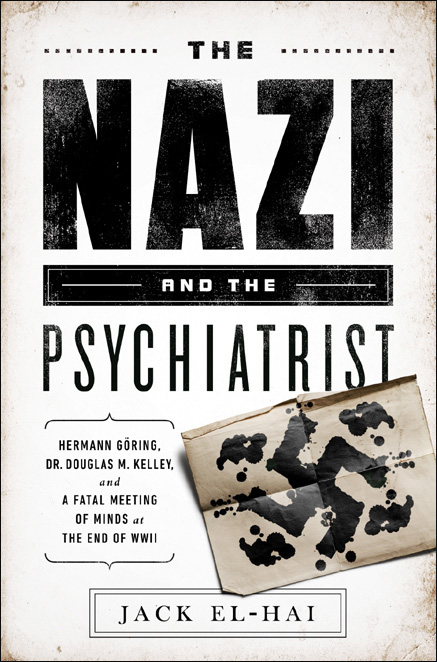
The Nazi and the Psychiatrist
Hermann Göring, Dr. Douglas M. Kelley, and a Fatal Meeting of Minds at the End of WWII
کتاب های مرتبط
- اطلاعات
- نقد و بررسی
- دیدگاه کاربران
نقد و بررسی

Starred review from October 21, 2013
Journalist El-Haiâs (The Lobotomist) haunting historical account raises questions about the human capacity to cause harm. Focusing on two charismatic but delusional menâGoring, who was in captivity, and Kelley, his interlocutor, El-Hai presents an engrossing case study on the nature of evil. Kelley, an American psychiatrist overseeing the U.S. Armyâs psychiatric services during World War II, was called upon to assess war criminalsâ ability to stand trial. His true ambition was to understand whether shared personality traits drove the horrors of the Nazi regime, and took the opportunity to study his subjectsâmost of whom were high-ranking Nazi officers. He did so with indifference to their culpability and little intention of treating them. One of his primary subjects was Goring, the designated successor to Hitler. Kelleyâs fascination with the human mind was perhaps as boundless as the delusional optimism of Goring, who believed his contributions to the Nazi Party would be celebrated and memorialized. In this thoroughly engaging story of the jocular master war criminal and the driven, self-aware psychiatrist, El-Hai finds no simple binary.

October 15, 2013
An outgoing, ambitious U.S. Army psychiatrist, Dr. Douglas M. Kelley was assigned to "maintain the mental fitness" of Nazi war criminals before the Nuremberg Trials. While interviewing and testing the accused leaders, Kelley developed a close relationship with Hermann Goring, Hitler's right-hand man. Helping the charismatic Goring lose weight and overcome his addiction to painkillers, Kelley remained aware of the Reichsmarschall's evil but was still shocked when Goring committed suicide via cyanide. Through his extensive research, Kelley came to believe that the qualities that led Nazi leaders to commit acts of horror were not unique to Nazi Germany, and this deeply troubled him over the years. Journalist El-Hai (The Lobotomist: A Maverick Medical Genius and His Tragic Quest To Rid the World of Mental Illness ) explores not only the mental states of the Nazi war criminals but also that of the overworked, distressed Kelley, who surprisingly committed suicide himself, also with cyanide, during a domestic dispute in 1958. Although more dramatic, this book is equally as well researched and well written as Eric Jaffe's A Curious Madness, reviewed below, which details the Tokyo war crimes and the army psychiatrist assigned to assess the sanity of one of its key defendants. VERDICT Recommended for those interested in the Nuremberg Trials, the Nazi criminal mind, or stories of human instability.--Leslie Lewis, Duquesne Univ. Lib., Pittsburgh
Copyright 2013 Library Journal, LLC Used with permission.

























دیدگاه کاربران